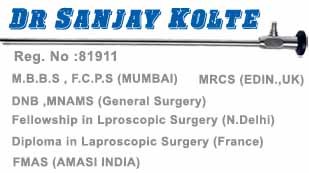Cholecystitis
Cholecystitis is an acute condition in which the gallbladder becomes inflamed and swollen because the flow of bile into duodenum is blocked by gallstones. The result is biliary colic (intense pain in upper right abdomen or between shoulders), indigestion, especially after fatty food, and nausea with or without vomiting. Untreated, the condition can lead to jaundice and occasionally, if the gallbladder bursts, to peritonitis. If the site of pain is as described above, and pain persists for more than 3 hours, consult your doctor if there is no improvement in 2 hours.
Causes
- Gallstones
- Ischemia (decrease blood supply to gallbladder)
- Secondary infections
Symptoms
- Often starts after a large fatty meal
- Sudden, steady pain in the middle or right upper abdomen
- Vomiting
- Fever
Diagnoses
- Medical history
- Clinical examination
- Abdominal X-ray
- Ultrasound
Course of illness
If untreated cholecystitis may lead to
- Gangrene in the gallbladder: This is a severe infection with destruction of tissue. Diabetics and the elderly are at highest risk.
- Cholangitis: An infection that occurs in the common bile duct outside the gallbladder.
Treatment
- Bowel rest (no food or drink)
- Intravenous fluid/feeding
- Antibiotics to combat infections. I.V. antibiotics may be used.
- Pain medications
- Laparoscopic cholecystectomy or the surgical removal of the gallbladder 2-3 days after cholecystitis for most patients
What you should do?
Go to the hospital emergency or call the local emergency number (such as 000, forPune,India ) if you have symptoms that may indicate peritonitis, as it is a medical emergency.


